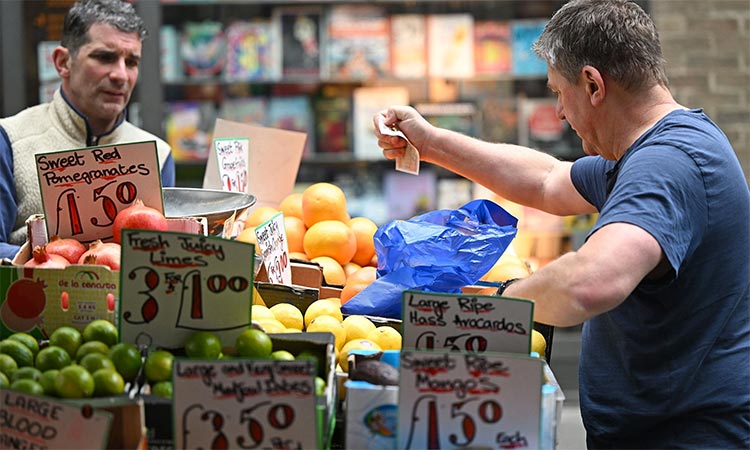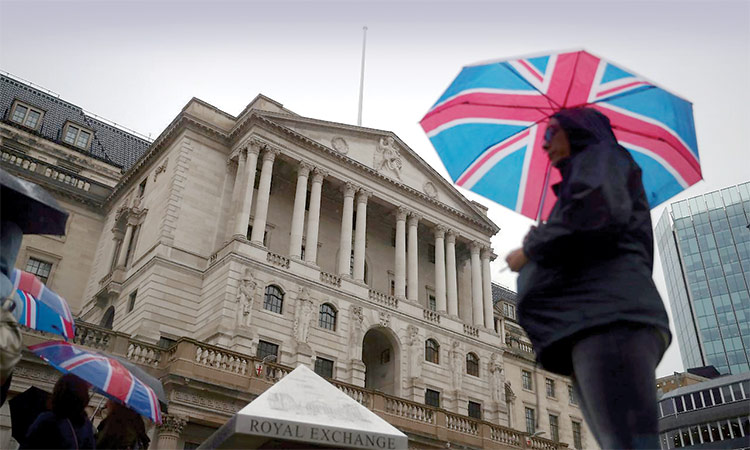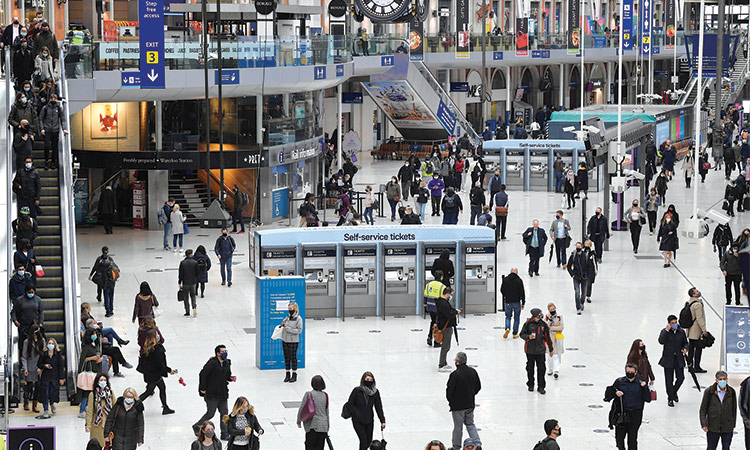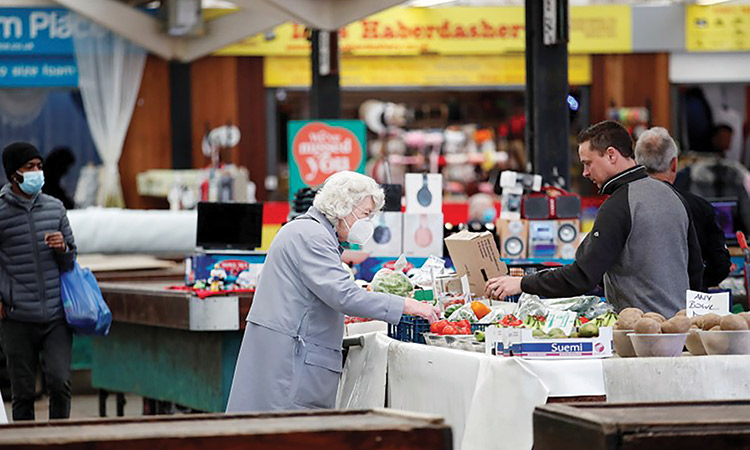UK inflation expectations ease as BoE considers next rate hike

Photo used for illustrative purpose.
Citi said its monthly survey conducted by market research company YouGov showed public expectations for inflation in 12 months’ time eased to 5.2 per cent in April from 5.4 per cent in March and expectations for five to 10 years ahead fell to 3.6 per centfrom 3.7 per cent.
Citi economist Benjamin Nabarro said Britain’s high inflation problem - the country’s main measure of consumer price growth remains above 10 per cent - were reflected in the findings which held well above pre-pandemic ranges,” the report said.
“However, today’s data still suggest UK inflation expectations overall remain anchored at target-consistent levels,” Nabarro said.
“With acute shortages and food inflation primarily responsible for recent volatility, we think risks around these data are more likely to ease in the months ahead than intensify further.”
The BoE is widely expected to raise borrowing costs again on May 11 after its monthly monetary policy meeting, with inflation running at five times its 2 per cent target.
Investors are putting a 92 per cent probability on a 25 basis-point increase in Bank Rate to 4.5 per cent and roughly 50 chance of hitting 5 per cent by August.
Britain was the only country in western Europe with double-digit inflation in March after it fell less than expected, official data showed, bolstering bets that the Bank of England will raise interest rates again in May.
Consumer price inflation (CPI) dropped to an annual rate of 10.1 per cent, the Office for National Statistics (ONS) said, down from 10.4 per cent in February but well above the 9.8 per cent forecast by economists polled by Reuters and the 9.2 per cent predicted by the BoE in February.
Inflation, which hit a 41-year high of 11.1 per cent in October, continued to eat into the spending power of workers whose pay is rising by less.
Prices for food and non-alcoholic drinks were 19.1 per cent higher in March than a year earlier - the biggest such increase since August 1977 - which the ONS said reflected higher costs for biscuits and cakes, and to a lesser extent chocolate and fruit. Milk and sugar cost around 40 per cent more than a year ago.
Britain’s headline inflation rate is now the highest in western Europe and compares with an average of 6.9 per cent in the eurozone and 5.0 per cent in the United States. Austria recorded a higher inflation rate than Britain in February.
The reading underlined expectations that Britain will suffer high inflation for longer than its peers due to its reliance on natural gas for heating and electricity, and the structure of government subsidies that smoothed out price changes.
The Bank of England also worries that high inflation might lead to a lasting upward shift in wage demands and businesses’ pricing strategies, exacerbated by a post-pandemic reduction in its labour force and trade and labour market frictions caused by Brexit.
Core inflation - which strips out volatile energy and food prices - failed to fall as expected and instead held at 6.2 per cent, while services inflation - which the BoE views as a proxy for domestic price pressures - held at 6.6 per cent.
“It’s now clear the UK has an inflation problem that is worse and more persistent than in Europe and the US,” said Ed Monk, associate director of personal investing at asset manager Fidelity International.
“Price rises here are proving more difficult to neutralise and the Bank of England will almost certainly add at least one more quarter-point hike to borrowing costs.”
Earlier this month, the BoE’s chief economist, Huw Pill, said the central bank still needed to “see the job through” on monetary policy tightening, though he saw some signs of falling inflation pressures.
Investors now fully price in a quarter-point interest rate rise to 4.25 per cent on May 11 after the BoE’s next meeting - up from an 80% chance on Tuesday - and expect rates to peak at 5 per cent by September, according to futures markets.
Sterling initially rallied on the data, before falling back, while the prices of two- and five-year British government bonds fell to their lowest since early March.
High inflation is a problem for Britain’s government as well as the BoE, which forecast in February that inflation would be below 4 per cent by the end of the year. Prime Minister Rishi Sunak promised at the start of 2023 to halve inflation, which would require it to fall to around 5 per cent by the end of the year.
“These figures reaffirm exactly why we must continue with our efforts to drive down inflation so we can ease pressure on families and businesses,” finance minister Jeremy Hunt said.






